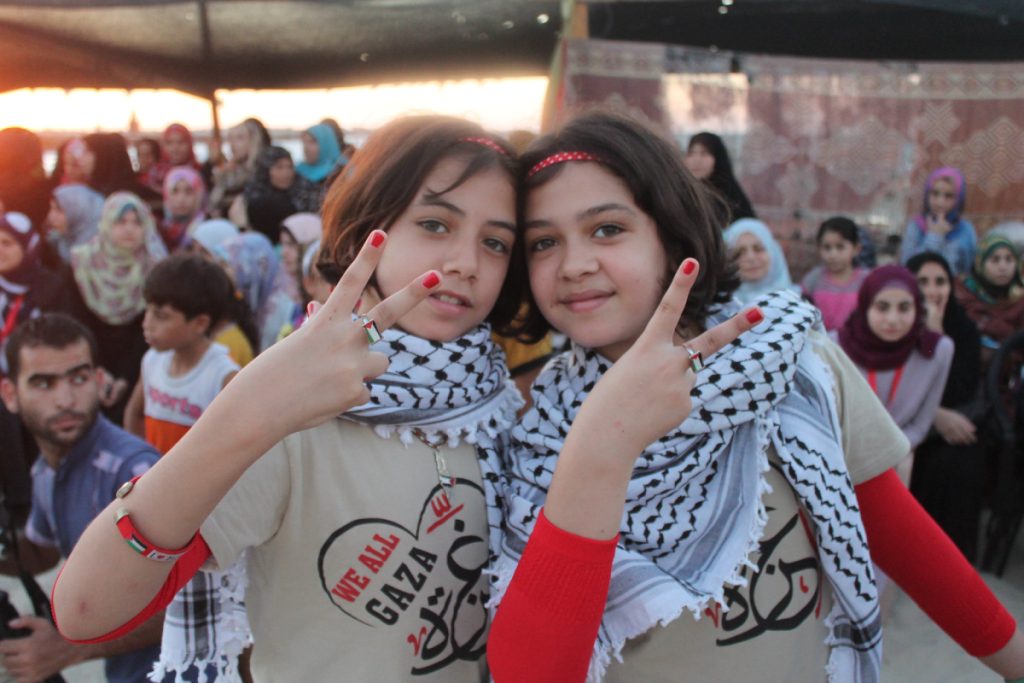“What a scandal it would be if you said: ‘You are intolerant, you are racist.’ Imagine if all Arab and Islamic students and staff went on strike and boycotted VU Amsterdam, that’s the power that you have and that you can use.”
This was at the end of the meeting in a small lecture hall in the VU Main Building, where about 50 people had gathered to listen to a panel of speakers on an academic boycott of Israel.
It was a carefully organised teach-in, with four rather academic treatises on topics including the legal aspects of such a boycott, the comparison to South Africa, where boycotts helped to ban Apartheid (legal and Apartheid expert Jeff Handmaker), the self-righteousness of white activists against Apartheid and the Israeli policy on Palestinians (anthropologist Gloria Wekker), and the context of boycotts at VU Amsterdam, including against South Africa (Professor of Global History Pepijn Brandon). Barghouti, who appeared to be the main speaker, gave a long treatise on the colonial context in which the “annihilation” of the Palestinian people is taking place.
False pretence
It was borderline boring at times and beforehand, moderator and VU philosopher Catarina Dutilh Novaes, had expressly announced that racism, antisemitism, sexism, homophobia, approving violence and a whole range of other misbehaviour wouldn’t be tolerated and that whoever engaged in such behaviour would be asked to leave.
Things came to life when it was time for the audience to ask questions, again carefully orchestrated, five at a time. Everything had been done to make the teach-in super civilised. Amongst other things, the questions were on boycotts against individuals (“Never”, said Barghouti, “only against institutes and people that act on behalf of those institutes.”), on the false pretence behind the “dialogue” between friends of Israel and those of Palestine, which some parties are trying to establish, and on the differences between South Africa and Israel, given that many Jewish inhabitants of the latter country were banned from their home countries and had no other choice than living in Israel.
Antisemitism
Dutilh Novaes asked the first question and wanted the panel members to tell her the best argument against an Israel boycott. “There are no good arguments against it”, answered Barghouti. “There is one that works, namely that a boycott is allegedly antisemitic, as the Israel lobby keeps claiming. But that argument is antisemitic itself, because it presents Israel as the ‘Global Jew’. It’s very simple: there would be no boycott if there was no suppression of Palestinians. That’s why the boycott isn’t antisemitic.”
His call to “threaten” VU Amsterdam with scandals came when he answered a question of a medicine student as to what she and her fellow students could do for the Palestinian cause. At that point, a lot had already been said about the hesitance of VU Amsterdam to allow gatherings on Gaza, the spontaneous protest on which VU Amsterdam had set the police the day before, and the rejection of the request by The Rights Forum to provide openness on VU Amsterdam’s ties with institutes that are complicit in the suppression of the Palestinians.
Feeling unsafe
VU Amsterdam and the Netherlands in general found little mercy with the panel members. “And this while the Netherlands is right next to Belgium, where trade unions and one municipality after the other speak out in favour of the Palestinians”, said Jeff Handmaker. He grumbled about the “crazy stuff” proposed in the House of Representatives, such as limiting the right to protest and the way everyone cramps up when daily De Telegraaf (“It’s always De Telegraaf”) has once again “dredged up an anonymous Jewish Dutch person somewhere in the Netherlands who feels unsafe after a protest.” According to Handmaker, Jewish himself, that person is never asked why they feel unsafe. “It’s like calling for a safe space like activists for social justice do, but then the other way around.”
Nobody should feel unsafe, everyone on the panel agreed, “but why shouldn’t you feel uncomfortable? There’s good reason to feel uncomfortable.”
Gloria Wekker didn’t feel uncomfortable, but rather “drenched in enthusiasm” thanks to the meeting, she said. She did issue the following warning: “This isn’t a sprint, but a marathon. It will take a long time before anything is achieved. Don’t be disheartened, remember I’ve been at it for 50 years already.”
